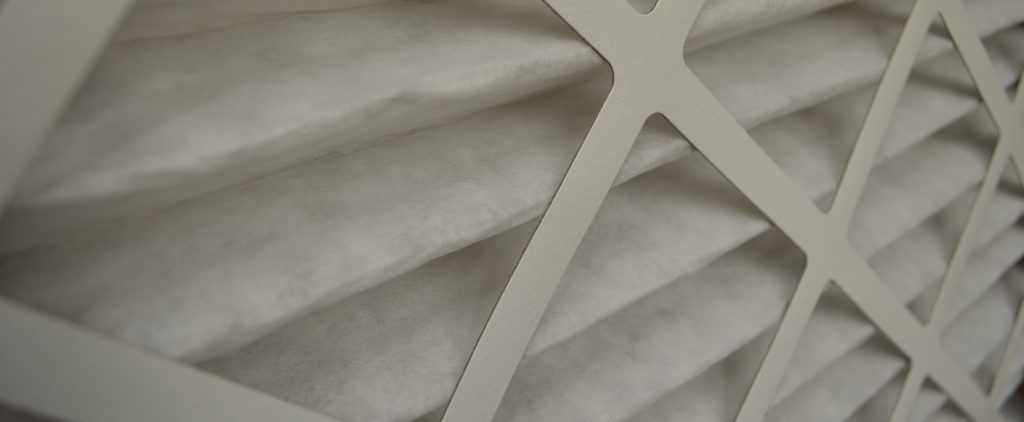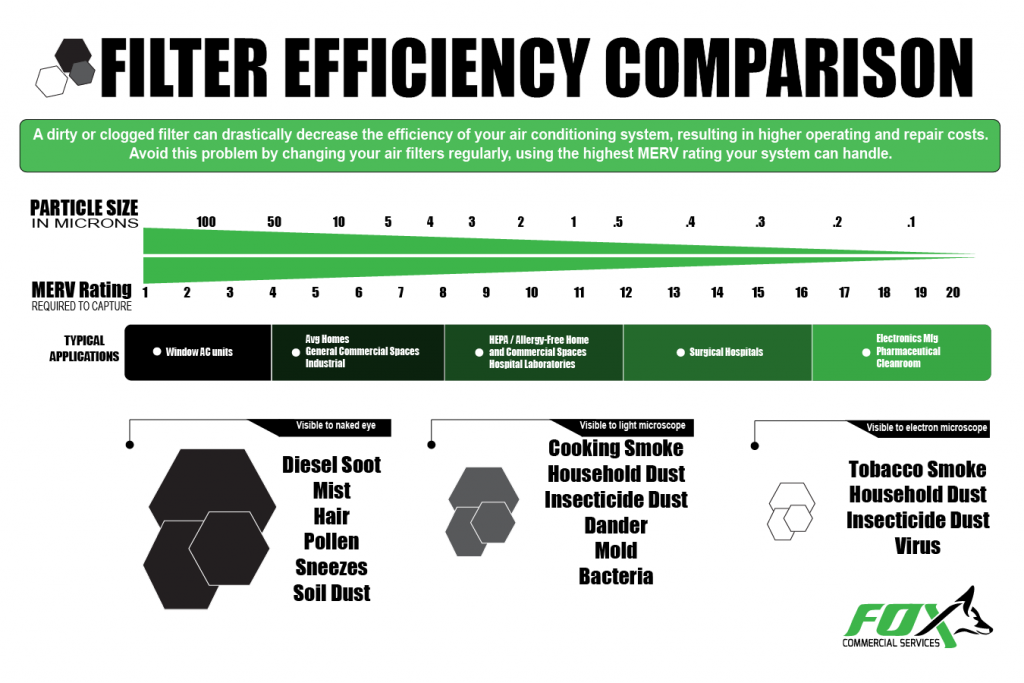How Do Air Filters Work?

Building operators know the importance of routinely replacing your commercial HVAC system’s filter. Air filters play a vital role in maintaining air quality within the space. The unfortunate fact is they need replacement frequently to ensure the system runs smoothly. Commercial air filters are generally replaced three to four times per year. Some units, however, will require monthly replacement in high-traffic circumstances.
What do Air Filters do?
Air filters are flat sheets made up of pleated paper, cloth or spun fiberglass. They are generally held in a cardboard frame and meant to be discarded after use. You can see visible signs of trapped dust and other particulates in a used filter, but not all of the things they capture are visible to the naked eye.
Air filters are designed to trap particulates in the air that circulate back through an HVAC system. As air travels through the building, it picks up the following contaminants:
- dust
- pollen
- mold spores
- hair
- dander
- microorganisms
- other particulates
As the air is forced back into the system to be cooled and redistributed back into the occupied space, it passes through the filter and leaves these particulates behind in the carefully designed mesh.
Without a clean filter, you risk re-circulating pollutants and particulates throughout your space. Also introduced are bacteria and mold to the AC unit itself, where it grows and becomes a much bigger problem. Additionally, hair, dust, and other contaminants clog up the inner workings of your AC unit and lead to dysfunction down the line. An inexpensive filter change saves you from a costlier air conditioning repair bill later on.
Filter Efficiency
Different air filters carry different ratings. The most efficient and high-quality filters will be more expensive but can protect against a wider range of contaminants.

Efficiency Ratings for Air Filters
Efficiency ratings currently range from MERV 1 to MERV 20. The lower numbers are the cheapest and made with the most basic materials; the highest is much more expensive but captures extremely small particulates. The average home air filter, for example, has a minimum efficiency reporting value or MERV Rating, between 6 and 8.
If you have occupants with sensitive allergies or other specific indoor air quality needs, you’ll want to talk to your Fox Commercial project manager about upgrading to a higher quality air filter.
To learn more about air filters or to discuss which filter is best for your office, be sure to call the commercial HVAC experts in Austin, at Fox Commercial Services. We’ll be happy to answer your questions and help you make the best choice for your commercial building![/vc_column_text][/vc_column][/vc_row]